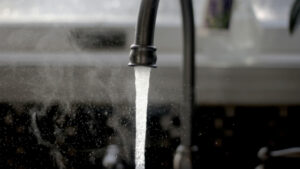What Causes Water Pressure to Decrease?
Low water pressure can be frustrating as it has an effect on your daily life. From use in the kitchen to the shower, low water pressure can make a task as simple as washing the dishes a nightmare.
So what causes water pressure to decrease? We have 6 common reasons why most homes face water pressure issues.
Water pressure issue #1: Issue with the water valve
Two valves control most homes water flow. If you face water pressure issues, you want to check these valves first. They are usually near the water meter. The valve that is positioned on the street side is the city’s, you may not have access to this since it belongs to the city. The other valve, which is on the side of your home, controls the water in your home.
You want to make sure both the valves are completely open. They control the water flow into your home so if it is not completely open then chances are you will have low water pressure. When operating the valve, you need to be gentle with it. Don’t apply too much force, which can cause damage.
If access to the city valve is cut off then you can contact the city office and see if they can send someone down to open it for you.
Water pressure issue #2: Fault in the fixtures
The faucets and showers in your home are used daily. With time they start to wear and tear. Faulty fixtures are one of the most common reasons for low water pressure. Once they get old the fixtures easy clog up with limestone, dirt, and even rust. All of which results in lower water pressure.
The best way to test whether it is a certain fixture is to run water through it at the same time with another. If you notice a difference in the pressure of the two then you know that one is faulty. Before running the test, just be sure to clean the aerator of the fixture so no dirt is stuck in it, which also results in lower pressure. When you’ve determined a fixture to be faulty, you can clean it out to clearing out the clog or have it replaced.
Water pressure issue #3: A damaged pressure regulator
The pressure regulator does exactly as it names states, it regulates water pressure in the plumbing. It is important that the regulator stays in shape otherwise you will either get no pressure or too much of it.
Fixing a regular isn’t hard; you just need to replace it. You can do it on your own or seek help from an Appleton plumber.
Water pressure issue #4: Clog in the water pipes
If your fixtures and valve have been cleared after inspection then the reason behind low water pressure could be clogged pipes. Clogged pipes aren’t easy to deal with and is better if left to a professional. You can consult a plumber to help figure out how the clog can be resolved. This can only be done after they inspect the pipes and determine where the clog is.
Water pressure issue #5: Plumbing problem
Corrosion in the plumbing can happen in older homes. If you are having trouble diagnosing the problem then chances are the plumbing is corroded. This may require a complete overhaul of the plumbing, which is obviously a project you cannot take up on your own. An Appleton plumber can help you with the project they can assess the corrosion and determine what the proper step maybe.
Water pressure issue #6: Main supply line has issues
If your home has been cleared from the above issues then chances are there is an issue with the main supply line. The line doesn’t supply your home with enough water, which has resulted in lower pressure. A plumber in Appleton, WI can help you assess this problem and help you take the right step to have it resolved.
There are numerous different factors that cause water pressure to decrease The hard part for most homeowners may just be identifying what the problem is. Before you take any drastic steps on your own be sure to get an expert to help out with the assessment and tell you the right course of action to take. Otherwise, you may end up causing more problems.


